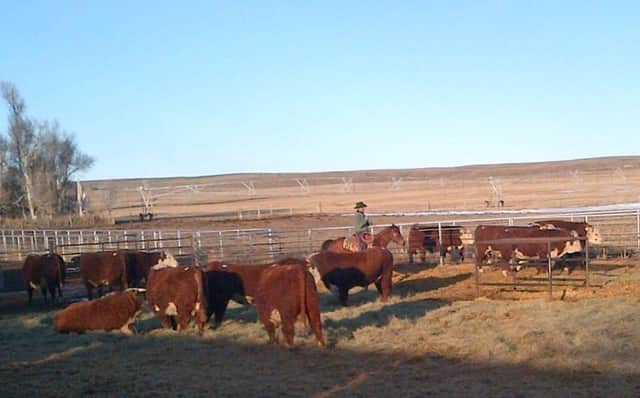Deal or no deal?


The all – island nature of our supply chains makes it equally important on both sides of the border that there is equality of standards and clear recognition of the processes involved to keep the cross border trade flows in place.
“In the absence of a deal the UK will have to move quickly to establish new arrangements for international trade,” according to Grain Trade Association President, Michael McAree.
Advertisement
Hide AdAdvertisement
Hide Ad“While the UK’s membership of the World Trade Organisation (WTO) is currently based on its membership of the EU it is likely that WTO rules will be the framework for future trade and our politicians will have to decide whether standard WTO tariffs will apply or indeed they may scrap tariffs altogether.”
The idea of “no tariff” trade in agricultural commodities has some attractions – particularly in the feed sector where it could open access to lower cost grains but WTO rules are sector specific and the UK cannot import tariff free grains without opening the door to tariff free food.
The impact of no tariff trade on our livestock sector is a concern – low cost meat and agri-produce could freely trade into the UK, giving consumers a welcome reduction in food costs, but at the same time creating significant competition to our native livestock production.
This would be felt most severely in Northern Ireland where half of our total food output is consumed in the UK mainland (a much higher percentage in the red meat sector).
Advertisement
Hide AdAdvertisement
Hide AdTransport and logistics costs again have a big impact with much of the product destined for the South of England shipped through Dublin. Faced with “Just in time” supply chains and short shelf life products the extra journey time involved in delays at border crossings or in travelling through Stranraer could be prohibitive.
Because of the continuing uncertainty the industry must plan for a no deal scenario which unfortunately means increased costs in terms of staff training to deal with new customs import and export procedures, planning for haulage issues and securing the ability for drivers to work across the islands.
The potential for Northern Ireland Agri-Food to continue to grow and build on the remarkable success of the last 20 years or so will depend on arrangements which maintain access to an all – island marketplace and allow a free flow across the Irish Sea.
“The resolution of the current negotiations are critical,” says Mr McAree. “The potential for serious damage to our economy in the event of no deal should not be under-estimated, but an agreement that offers us some regional flexibility could create opportunities for growth. A solution which allows us to do business as seamlessly as possible, both across the border with the Republic of Ireland and across the Irish Sea with Great Britain would be a positive outcome for the industry.”